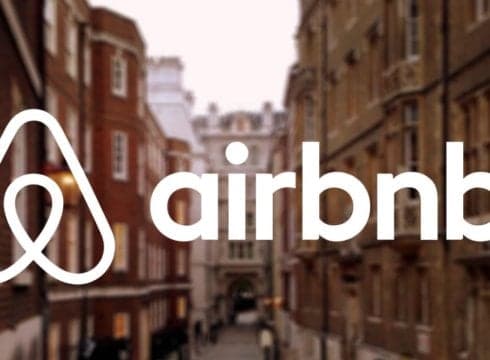Singapore doesn’t allow renting out residential spaces for less than three months
The number of listings on Airbnb went up 150% in India last year
In 2017 the company reported a revenue of $2.6 Bn with a net income of $93 Mn
Inc42 Daily Brief
Stay Ahead With Daily News & Analysis on India’s Tech & Startup Economy
Airbnb is looking to double its marketing investment in India to increase its visibility in Indian market. The development, as ANI reports, comes at a time when Singapore, where Airbnb’s Asia-Pacific (APAC) headquarters is based, decided to keep existing restrictions on short-term rentals.
The Urban Redevelopment Authority (URA) of Singapore said that it will not be going ahead with proposed changes to the rules for short-term stays in private homes after extensive consultations since 2015 with diverse groups of stakeholders. On May 8, it was announced that the minimum stay duration of three months will continue to apply, a decision which doesn’t quite go with the business model of Airbnb as it has several bookings that are of much shorter duration than the minimum required stay of three months according to the laws of Singapore.
According to the report, Airbnb’s APAC Regional Director Siew Kum Hong expressed his disappointment on the Singapore government not revising the rules for short term stays in private properties. Nonetheless, he is optimistic that the company will expand in the Asia-Pacific region, even Singapore as it is expanding beyond private-owned homes to list boutique hotels and other accommodation options that are not impacted by the Singapore government restrictions.
An Eager Indian Market
Since its entry in India in 2016, Airbnb has about over 45K listings in India, with Goa as the most popular market with more than 6,000 listings. Airbnb cofounder and chief strategy officer Nathan Blecharczyk during the Global Business Summit in Delhi had said that Airbnb’s business in India doubled in terms of guests over the last two-and-a-half years, with 1.8 Mn Indians already using Airbnb.
Airbnb has seen a steady rise in popularity in India — the number of listings went up 150% in the last year. The San Francisco-based accommodation and tourism company is eager to tap into the Indian market which has over 400 Mn millennials — higher than the entire population of the US.
In 2017 the company reported a revenue of $2.6 Bn with a net income of $93 Mn. It hasn’t revealed its 2018 numbers yet. In the first quarter of 2019, 500 Mn guests flocked into Airbnb homes, with the hosts earning over $65 Bn. Since it launched in 2008, it has had 250 Mn guests reviews.
Airbnb has also signed a strategic partnership with Oyo and the two companies are looking to collaborate on multiple projects, one of them being Airbnb listing OYO’s properties on its platform. According to Inc42’s sources, OYO Homes will be listed on the Airbnb platform, which includes nearly 10K villas and apartments. It recently introduced Airbnb ‘Plus Homes’ in India, featuring homes that have high ratings.
Airbnb, however, has come under criticism for making cluttering up residential spaces. The brand, as it is, fuels anxiety. According to a report by The Economist subtitled ‘Protests will meet holidaymakers’, tight housing markets in cities like Amsterdam squeeze further as landlords withdraw properties from sale or long-term rental in favour of the holidaymakers. Residents have been forced out as well — 18% of properties in central Florence are listed on Airbnb. In cities of tourist attraction like Amsterdam, it has been accused of turning homes into cash-raising assets rather than places to live. Several cities have taken a stand — Amsterdam, for example, has reduced tourist rentals to 30 from 60. In Barcelona, the government has stopped issuing new licenses to people who want to list out their homes. New York City homeowners cannot rent out their entire place for less than 30 days.
As the company expands in emerging markets, such as India, partnerships like Oyo will help it avoid sturdy competition. However, as cities expand to more tourists and people and rental companies merge, the profitable roadmap of short term stays in rentals like Airbnb will move homeowners away from renting out their properties to people for long term, and this is where a similar residential crisis might emerge.
{{#name}}{{name}}{{/name}}{{^name}}-{{/name}}
{{#description}}{{description}}...{{/description}}{{^description}}-{{/description}}
Note: We at Inc42 take our ethics very seriously. More information about it can be found here.


